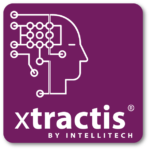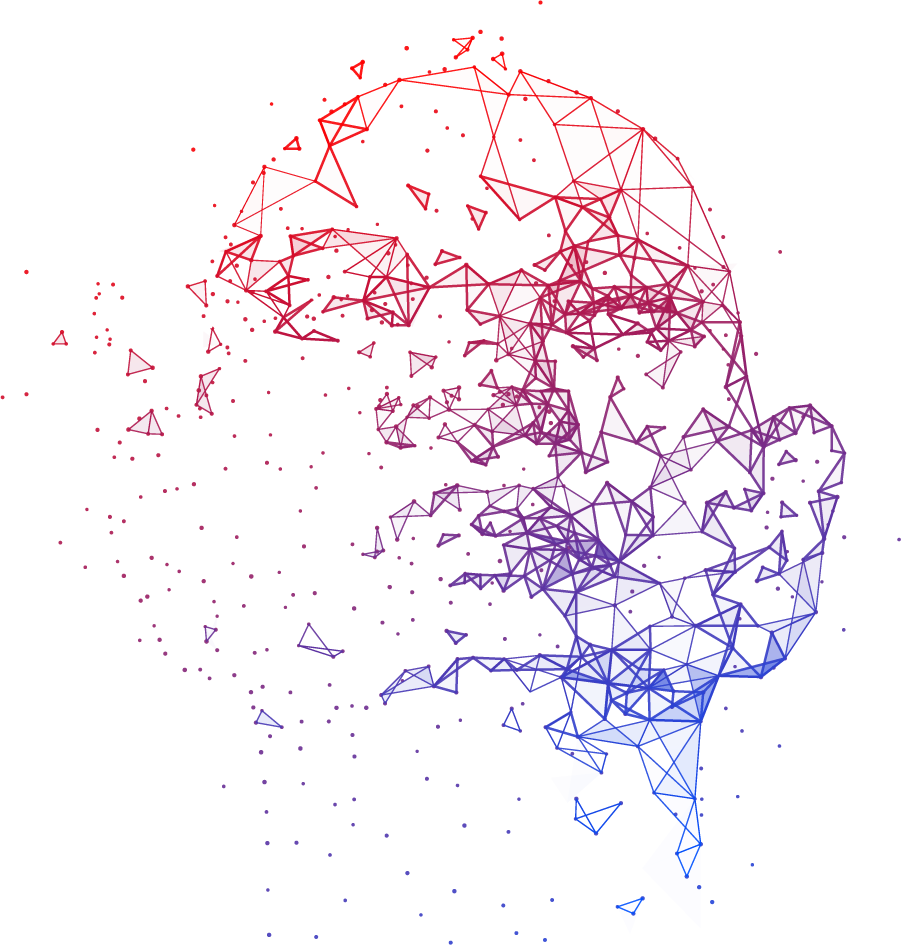pioneering
human-centric
trusted aI
25+ years of R&D in Artificial Intelligence & KDD (Knowledge Discovery from Data)
INTELLITECH is a private French Deep-Tech company founded in 1998 by Prof. Zyed ZALILA.
We first specialized in designing intelligent decision-making systems by hand (fuzzy expert systems), particularly for Advanced Driving Assistance Systems.
But what if an Artificial Intelligence could help us design decision systems quicker and even do the job better than we do?
INTELLITECH’s researchers and engineers have developed advanced mathematical approaches and conceived proprietary AI algorithms combining the theory of Fuzzy Relations of order N [Zalila 1993] and Inductive Machine Learning to offer a unique no-code AI solution.
Intelligent decision systems are now automatically designed by the XTRACTIS AI robots.
They are quickly produced and much more highly predictive because robots do not have cognitive limitations as we humans do! Nevertheless, humans still can understand how XTRACTIS-induced systems make their decisions as, at INTELLITECH, we believe in AI’s power but also that AI should give power -and empower- humans without overwhelming them.
This innovative solution is efficient for complex real-world problems and easy to use by the domain expert. It is a trustworthy and human-centric AI that brings huge value to the automation of decisions in any critical and strategic process like autonomous systems.
INTELLITECH meets the scientific and technological challenge of the Automatic Discovery of Robust, Intelligible, and Explainable Predictive Knowledge.
DeepTech since 1998
"Hand-built" ADAS
Exciting R&D works for designing innovative ADAS by postgraduate Zyed and his "Groupe Logique Floue" UTC lab team as part of a UTC-RENAULT partnership
Fuzzy Relations of order N
Ph.D. thesis in Fuzzy Mathematics @UTC by Zyed ZALILA establishing this mathematical theory
Zyed hired as Professor of Fuzzy Mathematics and Artificial Intelligence
Creation of the SY10 full course "Fuzzy Logic, Concepts & Applications" for undergraduate, graduate and postgraduate
INTELLITECH Established
Spinning off from UTC and featuring the best and bravest SY10 graduates!
Initial business model: Contract research at the request of clients
Building an AI to design decision systems from data
A pioneering idea and a lot of work ahead!
Kick-off of the XTRACTIS R&D
Alpha version of the software and first applications
The solution discovers -from data and with no-code- intelligible decision systems based on fuzzy rules
XTRACTIS beta version in Food Industry
Modeling of consumer liking and sensory expert evaluation from data
XTRACTIS for product formulations maximizing consumer liking (cheese, wine)
First winning international benchmark @Davis, California, for the "tomatoes" use case
XTRACTIS v1 Release and first Success Story
Modeling cats' liking: more than 900 variables to characterize cat pet food!
Press Review (soon)
XPARK! world premiere @IAA2005
Rolling prototype on open road: the first system ever having such a level of automation and performance. Efficiency even on the most constrained situations
XPARK! performs at IAA 2005 (Frankfurt Motor Show)
Extension of xpark! for automated exit from a slot
XPARK! Roadshows
Press Review (soon)
From XPARK! to XTRACTIS
Actually, the INTELLITECH team’s first achievement was back in 1990 when the first autonomous-type vehicle was designed by Zyed within a RENAULT-UTC research partnership. The car then has driven over 300 km on open roads with an entire trunk filled with computing power (Intel 80188 16 bit-CPU with some Kb of RAM) equivalent to that of our current smartphones !
In 2001, the xpark! system was the first worldwide automatic parking system proudly invented and developed by Zyed and his private R&D team INTELLITECH. This system automatically and perfectly parks a vehicle in a dynamic environment. It reproduces the parking strategy of an expert driver, especially in very constrained situations: small spaces, narrow streets, erroneous perception or change of the environment, any types of obstacles…
Tested in more than 45,000 real situations in Europe, our xpark! prototype was presented as a world premiere at the IAA in Frankfurt in 2005, and was the first vehicle to offer such a high level of assistance for parallel parking.
These driver assistance systems are fuzzy “hand-built” expert systems. Because they are built with Fuzzy Mathematics, they can adapt to the imprecision and uncertainty of the perceived environment, just as a human driver would do, and to the user’s subjectivity. However their design requires long trial and error cycles before being fully operational. So we imagined: instead of proceeding through these trial and error cycles, could an AI replicate our human inductive reasoning to generate more optimal fuzzy decision systems automatically?
Starting again in 2002 to take on this challenge, INTELLITECH began to build its XTRACTIS AI and focused all its R&D efforts on developing it. The goal was to design a universal solver that automatically creates intelligent systems with efficiency, whatever the field of application. First, we applied it to a non-critical domain, i.e., sensory engineering in the food and cosmetics industries. Data were small enough to be processed by the hardware of that time, and it was quite simple to assess the results. For each application, we were thrilled to see how our AI reveals the human brain’s unconscious decision strategy when doing a product’s sensory assessment. Then, as we are polymath scientists, we were interested in all kinds of applications!
We took time to fine-tune the underlying mathematical solutions and perfect and generalize our algorithms to solve more complex problems in critical modeling issues. Like any breakthrough innovation based on new mathematical concepts, XTRACTIS has made its way for a few years by taking advantage of the latest high-performance computing hardware technologies to become a reference Trusted AI solution.
Applying XTRACTIS to complex real-world problems
R&D projects of XTRACTIS applied to
- Optimizing Product Design for cosmetics, optical glass, automotive thermal comfort
- Predictive Quality Control: Quality of food packaging, Detecting defects on petroleum tubes by image analysis
- Finance: Predicting the chance of survival of start-ups
XTRACTIS v2 release and variying applications
Using XTRACTIS for:
- Optimizing Product Design for video gaming: Optimizing the playability of a game
- Gesture Recognition: Defining the exploration strategy for blind people
Multiplying XTRACTIS applications
Using XTRACTIS for
- Enhancing Quality Control of food raw materials
- Optimizing Product Design in sports equipment and sports nutrition, for hygiene tissues
- Detecting cracks in the composite structure of a high-speed vehicle
- Predicting the minimum learning time to master a task
- Predicting the ozone level in the air depending on the weather
Perfecting our algorithms and extending applications
Using XTRACTIS for
- Optimizing Resource Implementation: military, hospital, commercial, industrial, police
- Environment: Predicting the quality of the ionosphere
- Robotics: identifying the causes of failure of a robot control
- Optimizing Product Design: customer liking and expert sensory evaluation of industrial cakes
- Security: Predicting crimes in a city
- Predicting the quality of flexible underwater tubes
Perfecting our algorithms and extending applications
Using XTRACTIS for
- Optimizing Formulation for Cosmetics: efficiency vs. toxicity
- Real Estate Finance: Predicting the fair price for a real estate transaction
- Detecting tax fraud and money laundering through real estate transactions
- Optimizing Product Design in industrial confectionery
- Personalized Medicine: Predicting the evolution of Parkinson's disease by voice analysis
- Personalized Medicine: Diagnosis of breast cancer by image analysis
XTRACTIS v4 release
And using XTRACTIS for
- Optimizing Formulations for Agro-chemistry: efficiency vs. toxicity
- Predicting intrusions on a computer network
- Finance: Risk analysis for credit granting
- Predictive Maintenance of energy networks
- Human Resources: Predicting Wikipedia contributors hiring
- Biology: Identifying protein homology
- Marketing: Modeling the liking of automotive products
- Product Design: Optimizing the characteristics of automotive products

Perfecting our algorithms and extending applications
Using XTRACTIS for:
- Optimizing Formulation for Pharmacy: efficiency vs. toxicity
- Quality Control in metallurgy
- Marketing: Predicting the effectiveness of commercial promotions, sales forecasting
- Personalized Epigenetic Medicine: diagnosis of colon cancer
- Environment: Predicting biodegradability of molecules
- Seismic Analysis: oil / gas detection
- Sociology of Health: Predicting installation in general medicine after internships
Perfecting our algorithms and extending applications
Using XTRACTIS for
- Optimizing Product Design for aerospace
- Predictive Maintenance of ships
- Robust design of an automotive product
- CRM: Predicting attrition and churning for banking and telecoms
- Personalized Epigenetic Medicine: diagnosis of prostate cancer
Perfecting our algorithms and extending applications
Using XTRACTIS for:
- Quality Control of aerospace product
- Personalized Metabolic Medicine: Diagnosis of ovarian cancer by spectral analysis
- Quality Control of a critical software
- Finance: Risk analysis, Predicting business bankruptcy
- Predicting the attrition of a banking product
Perfecting our algorithms and extending applications
Using XTRACTIS for
- ADAS: Optimizing the design of an emergency braking assistance
- Predictive Maintenance for Aerospace
- Security in retail: detection of fraud during online purchases
- Finance: risk analysis, solvency, predicting default of repayment
Perfecting our algorithms and extending applications
Using XTRACTIS for
- Sonar identification of underwater mines
- Analysis of satellite images
- Vehicle detection by image analysis

XTRACTIS v7 release
And using XTRACTIS for
- Nuclear safety: assessment of the quality of batches of products during the recycling process
- Defense: tracking of vehicles on satellite images
- Object identification on images
XTRACTIS v8 release
And using XTRACTIS for
- Prediction of credit default scoring
- Recognition of facial expressions
- Real-time trajectory analysis based identification of aircrafts
- ...
XTRACTIS v9 release
XTRACTIS v10 release
XTRACTIS v11 release
XTRACTIS v12 release
Honors
2005 Prize of the Economic Press of Picardie

2006 Researcher of the Year Award

2008 Best Practices Awards

"Jury's Favorite" Award

2011 & 2012 Deloitte Technology Fast 50 Nord de France

2011 & 2012 Deloitte Technology Fast 500 EMEA
Contact Us
A question? Leave us a message.



